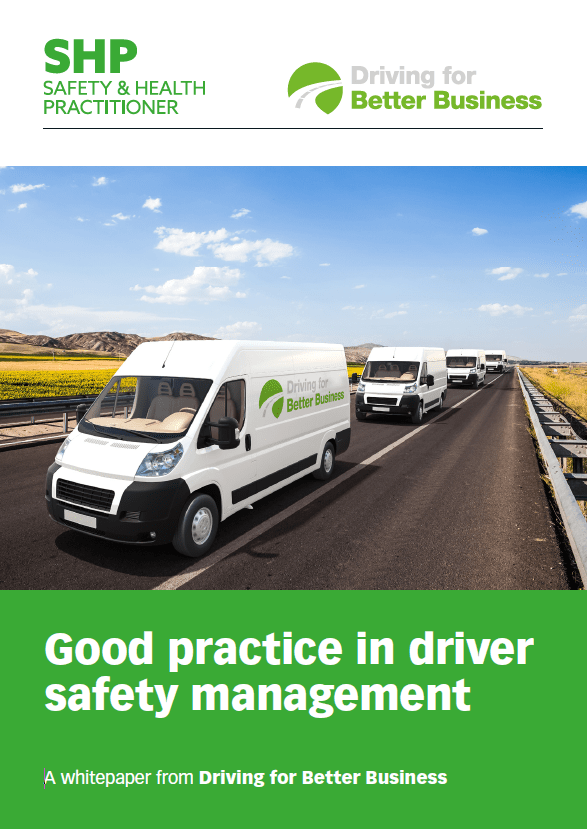The director of a haulage firm found guilty of health and safety failings in relation to the death of two people in a road accident involving one of its vehicles has been disqualified from holding a transport operators’ licence.
Robert Taylor, director of Dorset firm Translact Ltd, was deemed by the Western Area Traffic Commissioner Miss Sarah Bell to have “lost his repute” as a result of “convictions against the company, ongoing system failures and a failure to notify the Office of the Traffic Commissioner of material changes”.
The commissioner issued her decision in the wake of a Public Inquiry held in February this year, which considered convictions arising from breaches of health and safety legislation and convictions and infringements of drivers’ hours legislation in relation to Translact and its parent company Taymix Transport Ltd, as well as the officers of those companies – Taylor and his father Christopher Rory Taylor, director of Taymix and transport manager for Translact.
At separate hearings held last year, 16 drivers working for the companies all had their licences revoked and were disqualified for periods of between eight and 12 months for offences including falsification of tachograph charts and failure to record hours worked.
Translact and the Taylors were cleared of manslaughter charges in August last year over the crash, in which driver Maciej Szcygiecki ploughed into Neville and Cheryl De’Ath on the A303 in Wiltshire in March 2007. However, they and Translact were subsequently found guilty of charges under sections 2(1) and 3(1) of the HSWA 1974, for which they were fined more than £50,000 for health and safety breaches. (Click here for our earlier report on the case.)
Issuing her decision on the outcome of the Public Inquiry on 31 March, Ms Bell, as well as disqualifying Robert Taylor for eight years, revoked the Operator’s Licence for both Translact (which is to close as a business, as advised by Taylor) and Taymix – the latter effective from 7 June 2010. Rory Taylor was deemed to have lost his repute as transport manager for Translact and is, at present, unable to fulfil such a role in any traffic area.
The commissioner said it was “a tragedy that these operators and directors did not learn more from the events of March 2007”. She added: “We live in sophisticated times and it is incumbent upon operators to have equally sophisticated systems to ensure compliance at all times. Since March 2007, this decision highlights the inadequate steps to ensure compliance not only before but also after the tragedy, up to the date of the Public Inquiry. I can only express my disappointment at such a situation. This case cogently demonstrates the need for an honest, positive, and proactive approach to compliance underpinned by proper monitoring, review and control of systems.”
She was particularly scathing about Robert Taylor, finding that he had “condoned and connived” with drivers to falsify their tachograph records, and showed “a complete disregard for the law”. This, she concluded, “is most unacceptable, and such an individual has no place in the operator licensing system. To find otherwise would be an affront to a hard-working, legitimate industry.
With regard to Rory Taylor’s failure to adequately fulfil the role of transport manager, or to ensure the competence of others undertaking that role in practice, she said: “Essentially, a qualified transport manager was not exercising continuous and effective control of the transport operations. A transport manager must have an enquiring mind, looking for independent evidence of compliance, recording audit processes in a clear manner, and reviewing compliance when events put one on notice that a part of the system may be inadequate.
“The concept of one person to undertake the oversight role for legal compliance is a sound one – for example, the systems for ensuring health and safety and operator licensing compliance are complementary, not separate.”
Lack of competence among those carrying out risk assessments – including Rory Taylor – failure to formally induct and train employees, and absence of a system to ensure bad habits were not handed down were also cited in the traffic commissioner’s decision.
However, she did acknowledge that some steps had been taken by the companies to improve matters both after the accident and last year’s health and safety prosecution. These included a review of routes to ensure that they could be completed within the drivers’ hours regulations, a more robust system to ensure that charts were returned on time, and a new pay structure such that drivers are no longer paid hourly.
But Ms Bell remained sceptical about whether lessons really had been learnt by those concerned. Of Rory Taylor, she said: “I was very concerned when he told me he was relieved at the outcome of the manslaughter trial because it meant that Translact did not ‘cause’ the death. This statement tells me that Rory Taylor did not learn a salutary lesson from the prosecution and Public Inquiry process, namely that if you do not have robust systems in place – and health and safety and operator-licensing systems are wholly compatible here – whether or not a tragedy happens is a matter of chance.”
This eBook will guide you through some of the key understandings you need to be able to manage driver safety effectively and, at the end, provide a series of free resources you can access to help you ensure your own driver safety management system is robust, legally compliant and in line with industry-accepted good practice.
Download this eBook from Driving for Better Business and SHP to cover:
- Why do we need to manage driver safety?
- Duty of care – a shared responsibility;
- Setting the rules with a driving for work policy;
- Managing driver safety;
- Ensuring safe vehicles;
- Safe journeys and fitness to drive;
- Record keeping;
- Reporting;
- The business benefits of good practice;
- Additional resources

